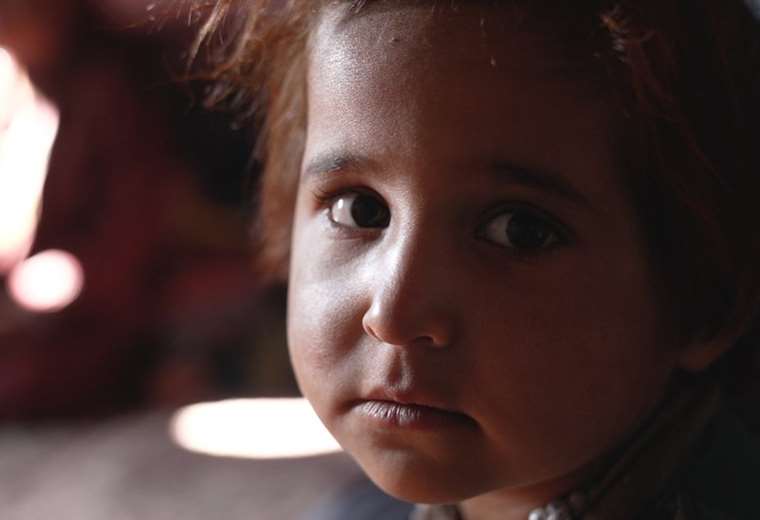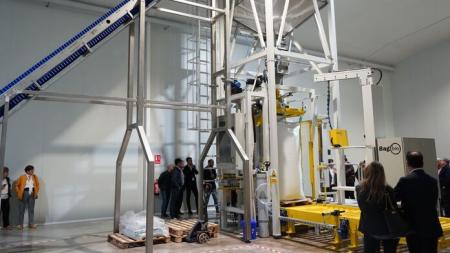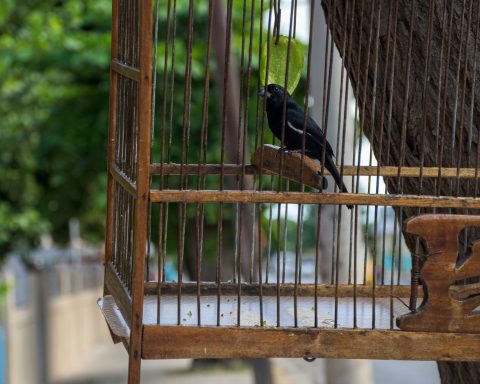November 29, 2022, 7:26 AM
November 29, 2022, 7:26 AM
Some Afghans give their starving children drugs to sedate them; others have sold their daughters and their organs to survive. In the second winter since the Taliban took power, foreign funds were frozen. Millions are one step away from famine.
“Our children do not stop crying and do not sleep. we don’t have food“Abdul Wahab said.
“So we go to the pharmacy, we buy pills and we give them to our children to make them feel numb“.
He lives on the outskirts of Herat, the country’s third-largest city, in a settlement of thousands of mud houses that has grown over decades, filled with people displaced and hit by war and natural disasters.
Abdul is one of a group of nearly a dozen men who gathered around us. We asked how many gave medications and drugs to their children to sedate them.
“Many, all,” they replied.
Ghulam Hazrat He reached into his robe pocket and pulled out a strip of pills. They were alprazolam, tranquilizers that are often prescribed to treat anxiety disorders.
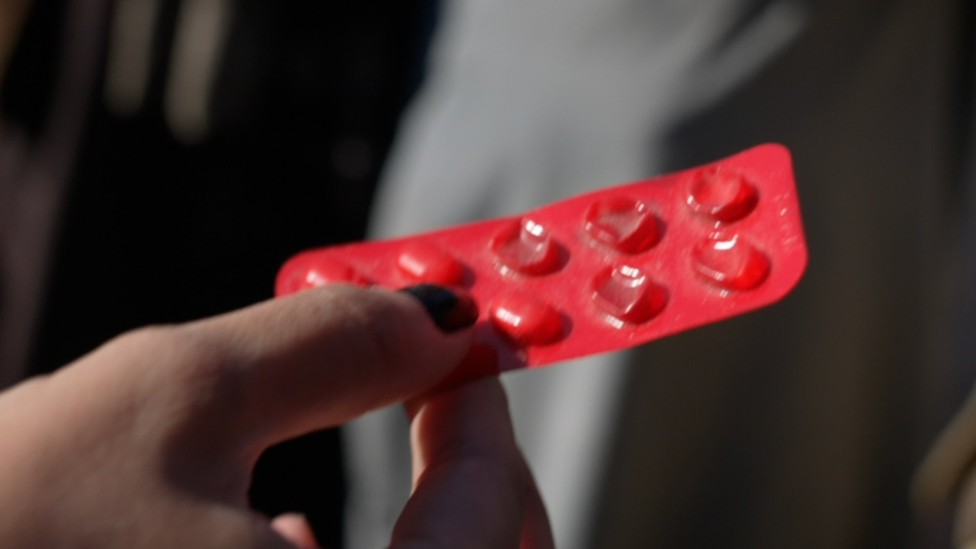
Ghulam has six children, the youngest one year old. “I even give it to him,” she assured.
Others showed us pill strips escitalopram and sertraline which they said to give to their children. They are often prescribed to treat depression and anxiety.
Doctors claim that when given to young children who are not receiving adequate nutrition, these drugs can cause liver damagein addition to other problems such as chronic fatigue and sleep and behavior disorders.
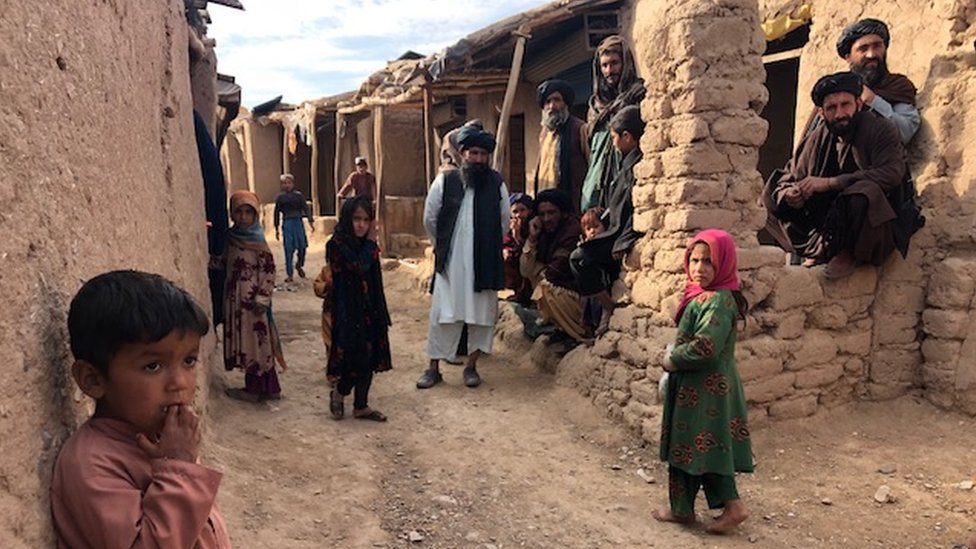
At a local pharmacy, we discovered that five tablets of the drugs used can be purchased for 10 Afghanis (about 10 US cents) or the price of a piece of bread.
Most of the families we met shared a few pieces of bread a day. One woman told us that they ate dry bread in the morning and at night they dunked it in water to moisten it.
The UN has said that it is taking place a humanitarian “catastrophe” in Afghanistan.
Many of the men in the area outside Herat work as day laborers. They have led a difficult life for years.
But when the Taliban seized power in August 2021, without the new de facto government being internationally recognized, foreign funds flowing into Afghanistan were frozen, triggering an economic collapse that left many jobless.
On the rare days when they find work, win close 100 afghanisor just over 1 dollar.
Everywhere we went, we found people forced to go to extreme measures to save their families from starvation.
Ammar (not his real name) told us that three months ago you they operated to remove a kidney and showed us a 20 centimeter scar – the stitch marks are still a little pink – that runs across his abdomen from the front of his body to his back.
He is in his early twenties, which should have been the prime of his life. We hide his identity to protect him.
“I had no way out. I had heard that a kidney could be sold at a local hospital. I went there and told them I wanted to do it. A few weeks later they called me on the phone to ask me to go to the hospital,” she says.
“They did some tests on me and then they injected me with something that knocked me unconscious. felt scared but had no choice“.
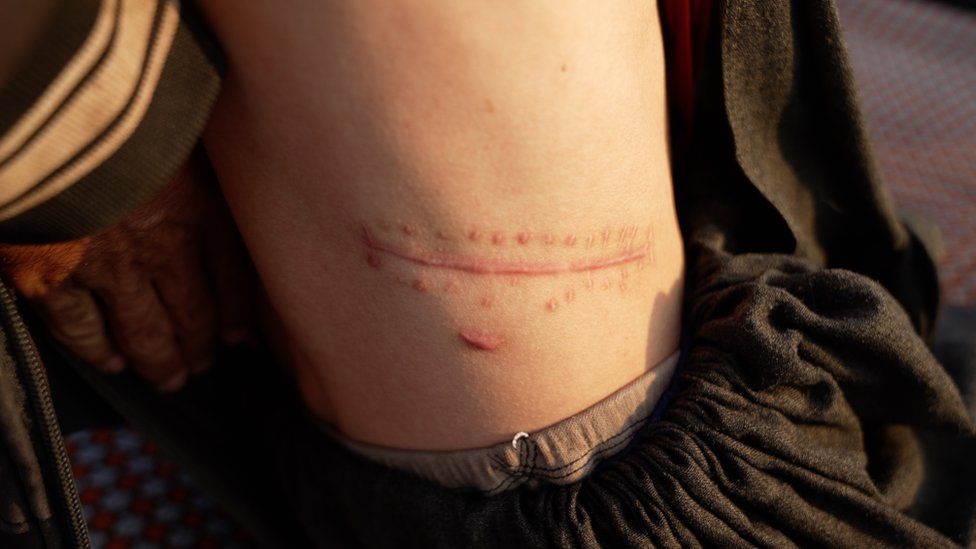
Ammar received some 270,000 Afghans ($3,100). Most of it went to pay back the money he had borrowed to buy food for his family.
“If we eat one night, we don’t the next. After selling my kidney, I feel like half a person. I feel desperate. If life goes on like this, I feel like I might die,” he said.
Selling organs for money is not unknown in Afghanistan. It used to happen even before the Taliban takeover. But now, even after making such a painful decision, people realize that they still can’t find the means to survive.
In a bare and cold house we met a young mother who said she sold her kidney seven months ago. They also had a debt to pay: the money they had borrowed to buy a flock of sheep. The animals died in a flood a few years ago and lost their livelihood.
The 240,000 Afghans ($2,700) that he received for the kidney are not enough.
“Now we are forced to sell our two-year-old daughter. The people we have borrowed from harass us every day,” he said.
“I feel very ashamed of our situation. Sometimes I feel that it is better to die than to live like this“, assured her husband.
Over and over again we hear of people selling their daughters.
“I sold my five-year-old daughter for 100,000 afghanis”said Nizamuddin. That’s less than half the cost of a kidney, based on what we found on the ground. He bit his lip and his eyes filled with tears.
The dignity with which the people here led their lives has been broken by starvation.
“We understand that it is against Islamic laws, and that we are endangering the lives of our children, but there is no other waysaid Abdul Ghafar, one of the community chiefs.
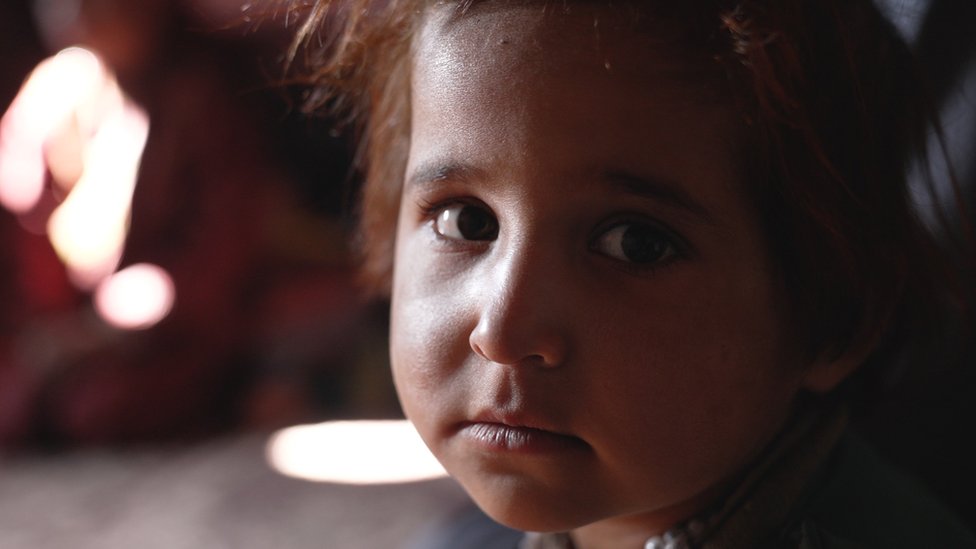
At one home we met four-year-old Nazia, a cheerful girl who made funny faces while playing with her 18-month-old brother Shamshullah.
“We don’t have money to buy food, so i announced in the local mosque that i want to sell my daughter“His father Hazratullah explained.
Nazia was sold to marry a boy from a family in the southern province of Kandahar. At 14 years old, she will be sent away. So far Hazratullah has received two payments for it.
“I used most of it to buy food and a part for medicines for my youngest son. Look at him, he is malnourished,” Hazratullah said, lifting Shamsullah’s shirt to show us his swollen belly.
The staggering increase in malnutrition rates it is proof of the impact that famine is already having on children under the age of five in Afghanistan.
Doctors Without Borders (MSF) has seen how the rate of admission to its facility to treat malnutrition has risen to 47% this year compared to the previous one.
The MSF feeding center in Herat it is the only well-equipped one serving not only Herat, but also the neighboring provinces of Ghor and Badghis, where malnutrition rates have risen 55% in the last year.
Since last year, they have increased the number of beds to cope with the number of sick children waiting to be admitted. Even so, the facilities are always full. Increasingly, arriving children have to be treated by more than one disease
Omid is malnourished and has a hernia and sepsis. At 14 months, he only weighs 4 kg. The doctors told us that a normal baby at that age would weigh at least 6.6 kg. His mother, Aamna, had to borrow money to go to the hospital when the boy started vomiting.
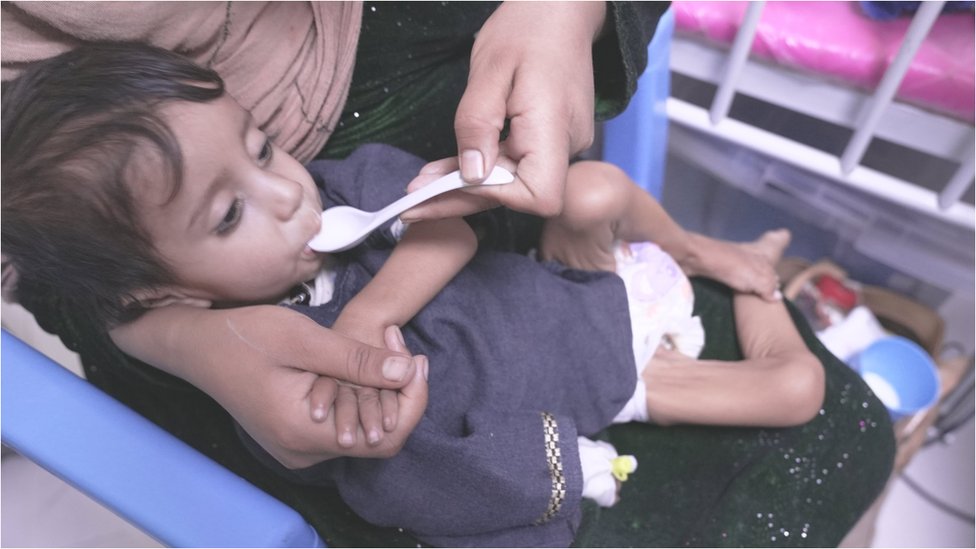
We asked Hameedullah Motawakil, spokesman for the Taliban’s provincial government in Herat, what they are doing to fight hunger.
“The situation is a consequence of the international sanctions imposed on Afghanistan and the freezing of Afghan assets. Our government is trying to identify how many are in need. Many lie about their conditions because they think they can get help,” he said, a position he defends despite the fact that we have seen overwhelming evidence of how bad the situation is.
He also assured that the taliban were trying to create jobs. “We want to open iron ore mines and a gas pipeline project.”
That is unlikely to happen anytime soon.
people told us that she felt abandoned by the Taliban government and by the international community.
Hunger is a slow and silent killer. Its effects are not always immediately visible.
Away from the world’s attention, the magnitude of the crisis in Afghanistan may never come to lightBecause no one keeps count.
Additional reporting by Imogen Anderson and Malik Mudassir.
Remember that you can receive notifications from BBC Mundo. Download the new version of our app and activate them so you don’t miss out on our best content.
